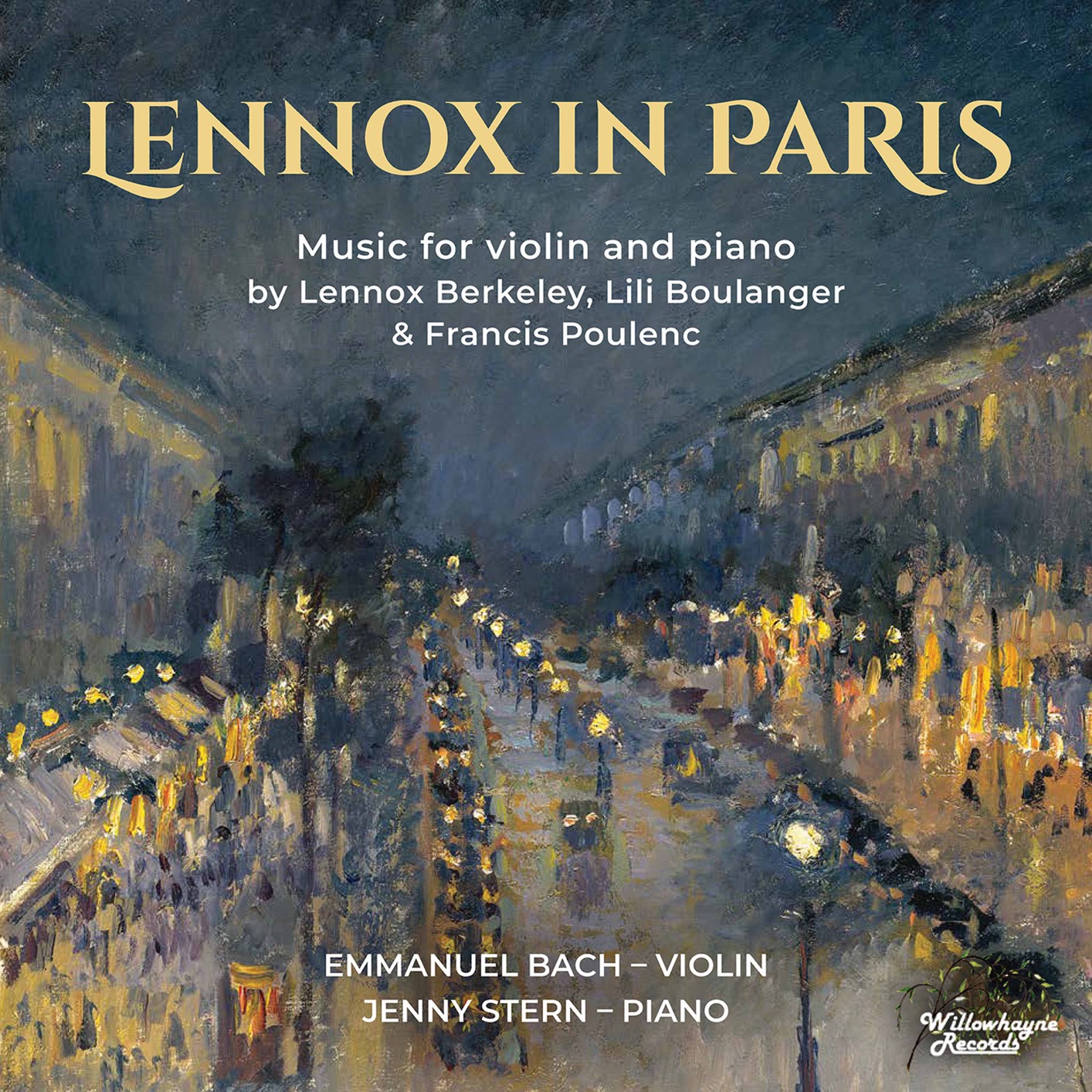Lennox Berkeley
Sonatina
Violin Sonata No.1
Elegy and Toccata
Lili Boulanger
D’un Matin du Printemps
Nocturne
Cortège
Poulenc
Violin Sonata
Poulenc transcribed Heifetz
Mouvements Perpétuels
Presto
Emmanuel Bach (Violin)
Jenny Stern (Piano)
Willowhayne Records WHR070
Full Price

The Review
Given some of the nonsense handed out to customers as liner notes by big companies recently, it is a relief to have a full and sensible booklet for this issue from the small Willowhayne label.
Emmanuel Bach writes intelligently about the music he plays so well (not surprising since he has a double first from Magdalen College, Oxford) and the context is well worth exploring. Lennox Berkeley only spent six years studying full time in Paris (1926-32) but by the end of it he was almost an adopted son of the city and far better plugged into its artistic scene than London’s. For the next fifty years it exerted a pull on both his style and his reputation.
Crucial to those years and his work thereafter was his close friendship with Francis Poulenc. He was a more diffident person than Poulenc and there is less ebullient wit in his style. He tends to the serious where Poulenc would have slipped into the idiom of easy boulevard tunefulness but there is the same rhythmic insistence in fast movements, a similar languor about the slow ones and, most of all, economy in the writing. Berkeley was rarely expansive. Like so many (from Copland and Virgil Thomson to Quincy Jones) he was in Nadia Boulanger’s classes but Emmanuel Bach points out rightly that the influence and introductions of Ravel, the company of Poulenc’s colleagues in Les Six and the heady evenings spent in Le-Boeuf-sur-le-toit (The Ox on the Roof), the bar they all frequented named after the ballet by Milhaud, were what really stuck.
Lily Boulanger had been dead for eight years by the time Lennox started studying with her sister (even though she was only ten years older than him) but the three idiomatic impressionist pieces here, including the passionate Nocturne and the remarkably frisky Cortège (almost a Surrey With A Fringe On Top), are welcome reminders of what a massive figure she could have been.
The Poulenc and Berkeley Sonatas are the meat of this disc, though. Berkeley’s problem in comparison is that he could not anchor his material around snatches of whistlable melody like those Poulenc came up with even when, as in the tense first movement, his friend was being thoroughly respectable. This is the hint of Ravel about Poulenc that Berkeley could never quite match.
Emmanuel Bach and Jenny Stern make a good unified team. There are moments when Stern’s touch could be a fraction lighter, especially in the Poulenc pieces. She dwells a little which in turn drags Bach’s response. That is a quibble, though, and his engaging playing, relishing the slow movements and agile in the faster ones, means that this young violinist is showing he has plenty to offer. The recording gives the impression that they are in a starker venue than the Turner Sims Hall at Southampton University. A bit more warmth would have been welcome but the excellence of the programme makes up for any slight reservations.
SM
